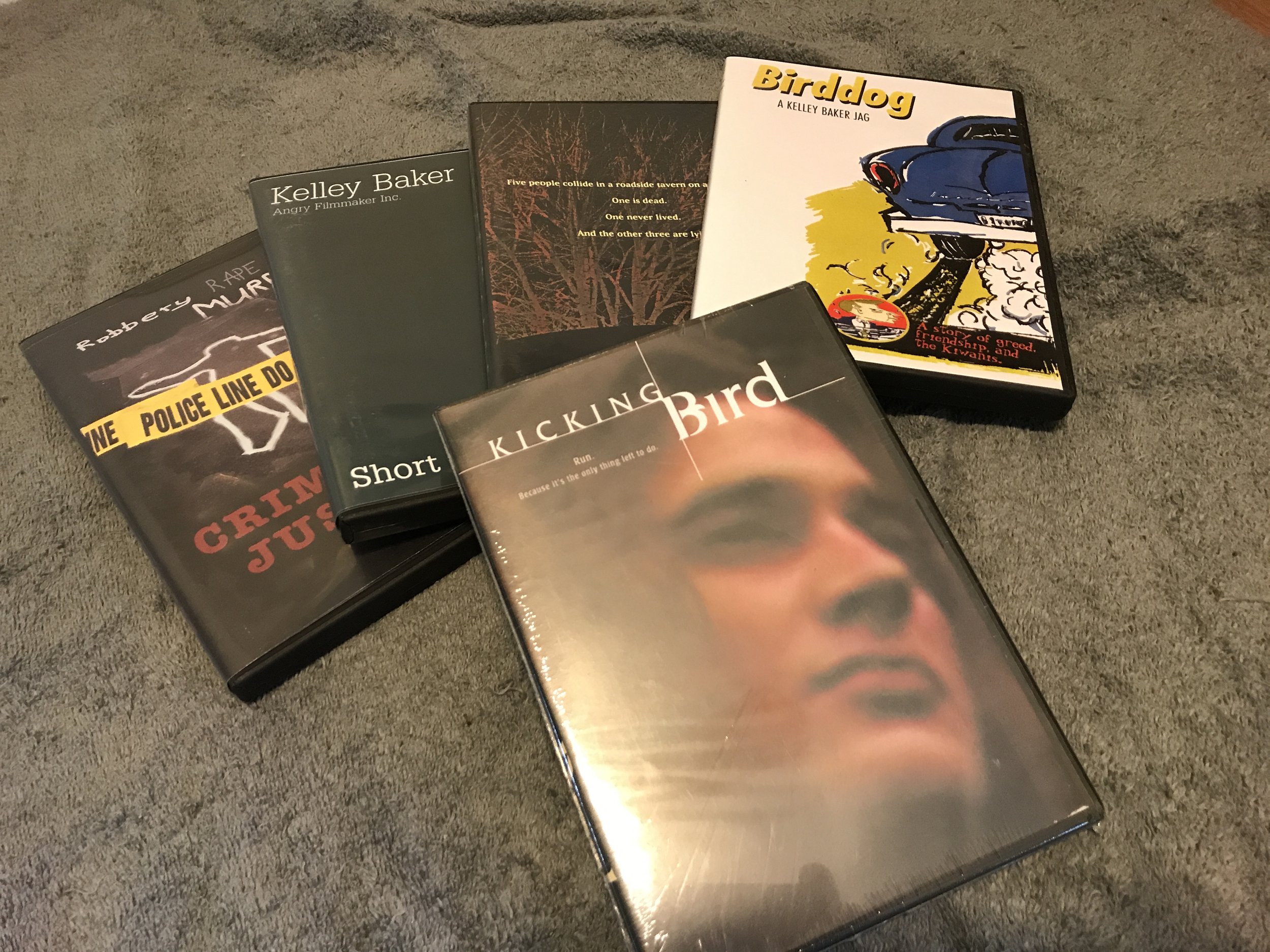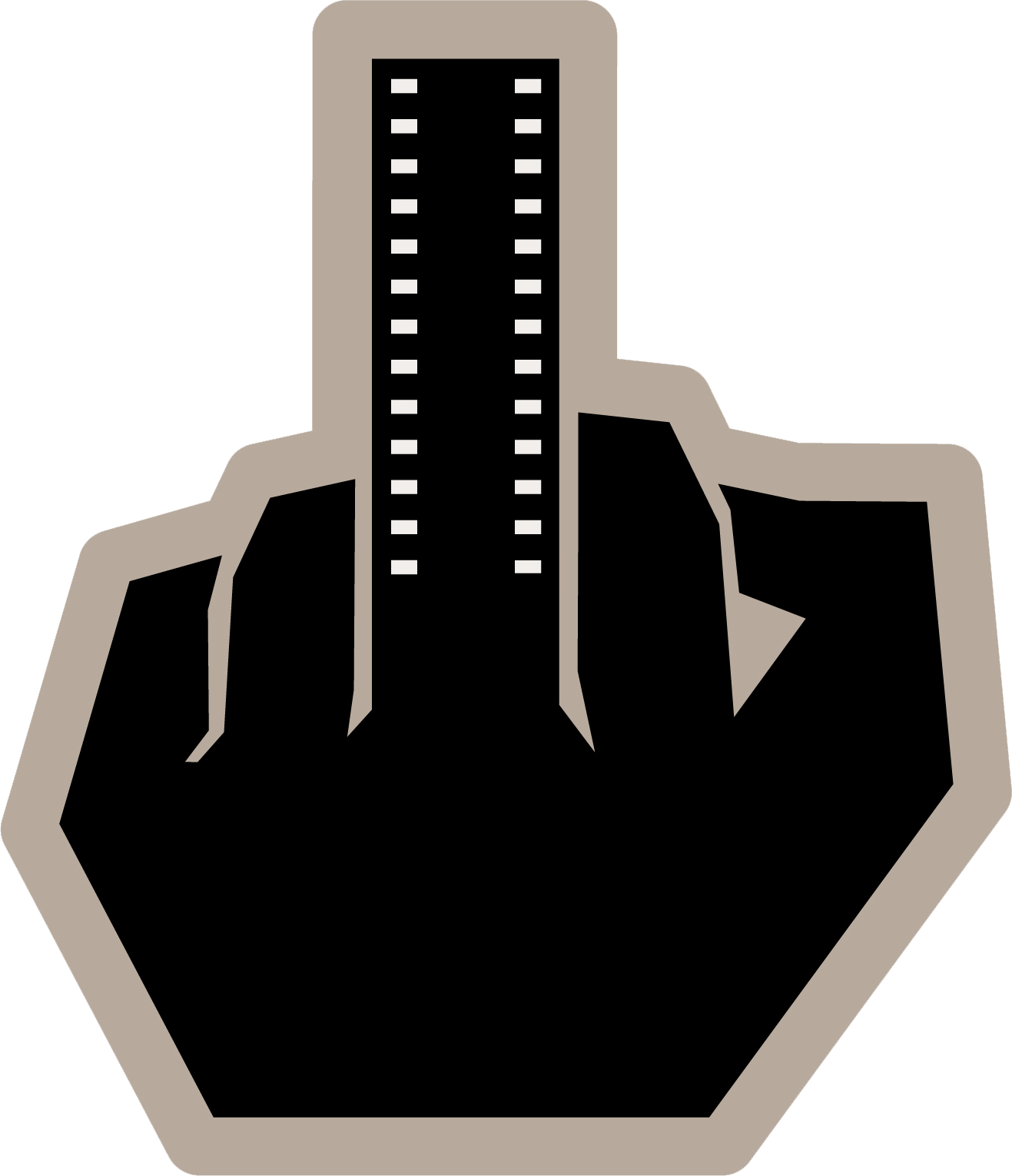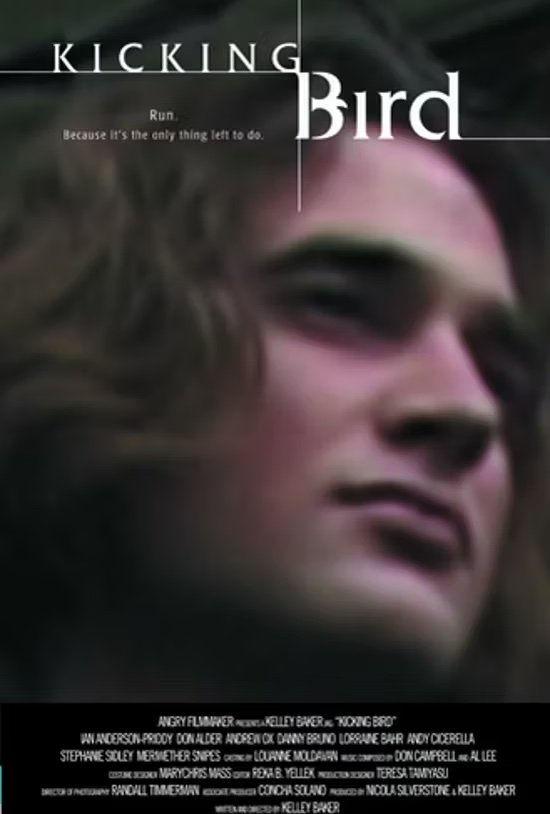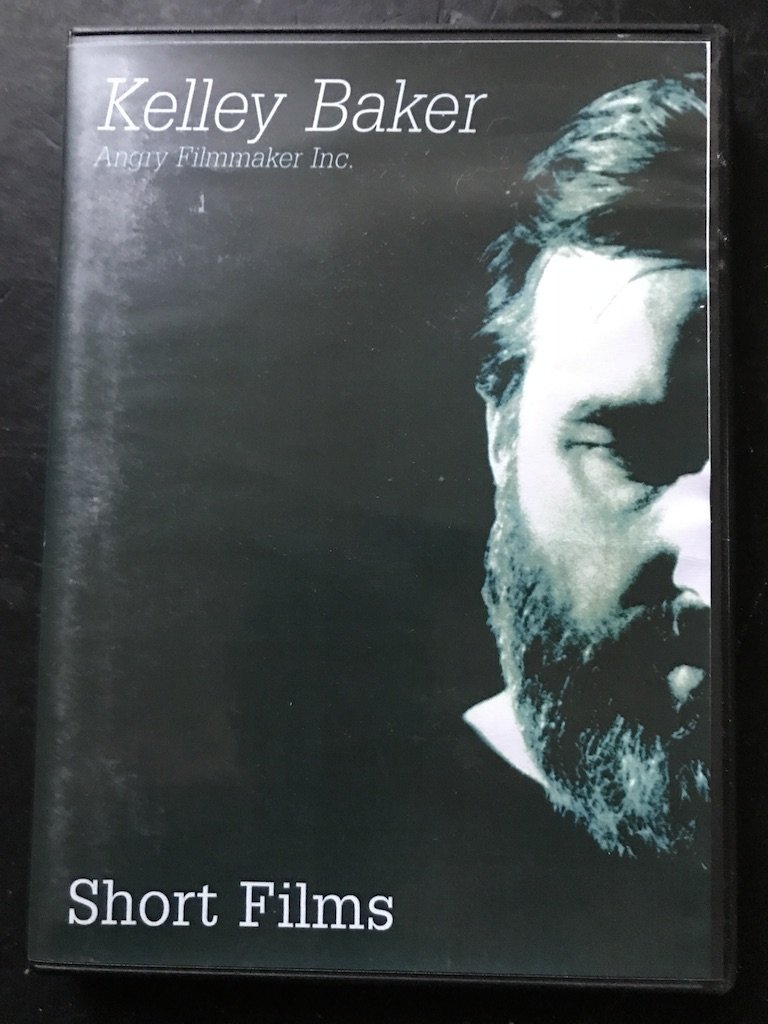
The Films
W O R K I N P R O G R E S S
Dangerous: Kay Boyle
“Kay Boyle is the most dangerous
woman in America!”
— S.I. Hiyakawa (1967)
In 1967 at the height of the Vietnam war protests, S.I. Hiyakawa, then president of San Francisco State university, (and later United States Senator), publicly fired Kay Boyle for her active role in the student protests. Kay Boyle was 65 years old. DANGEROUS: KAY BOYLE is a feature length documentary profiling the life and work of writer and political activist Kay Boyle.
As an American expatriate writing in Paris in the 20's and 30's, a journalist documenting the fall of France in the 40's for The New Yorker, a blacklisted writer in the 50's, an anti-war activist and essayist in the 60's and 70's, and founder of the San Francisco chapter of Amnesty International in the 80's, Kay Boyle's literary and political career is a chronicle of the events and concerns of the Twentieth Century.
Beginning in 1923, when she issued, along with 16 other expatriate writers, a proclamation calling for "The Revolution of the Word," which mirrored the decadence and self-involvement of the era by declaring that "the writer expresses, he does not communicate," to the 1985 publication of Words That Must Somehow Be Said, a collection of her poetic and searing essays composed primarily while she was imprisoned for protesting the Vietnam War, Kay Boyle has utilized and transformed the political and social realities of her times into art. And, as Kay herself has admitted, seconded by her biographer Sandra Spanier, it has cost her dearly.
Cited in 1928 by Katherine Anne Porter as the next James Joyce or Gertrude Stein, Kay Boyle nevertheless has remained one of the most unsung women writers of the century, repeatedly overshadowed by many of her less accomplished contemporaries. Perhaps this is because Kay Boyle chose to pursue the path of "a moralist in the highest sense of the word, speaking briefly and clearly of the dignity and integrity of individual man." Perhaps it is because early in her career she made a conscious decision that politics were as important as art. Perhaps it is because, as Studs Terkel has suggested, just when her work was beginning to reach a wider audience she was blacklisted. While DANGEROUS will be a profile of the extraordinary life of Kay Boyle, it will also seek to answer some of these questions, exploring the ways in which the career of a talented American writer suffered because the content of her work was overtly political.
Potential funders for this project have asked "Why Kay Boyle?" The subtext of the question is, we don't think she's "major" enough to warrant a documentary; we don't think she's famous enough.
It is for this reason, her life as writer, political activist and mother, deserves attention. She is not simply another bohemian with a book. Her political views have made her unpalatable to some. Her need to support her family compelled her to write faster than she might have otherwise. Her life was not the glamorous life of an artist, yet she remains one of our few American women of letters.
That Kay Boyle, who died at the age of 90, was our last living link with the Lost Generation is perhaps only of passing interest. More importantly, she is a role model for women, young and old, struggling artists, and people committed to upholding their own values and beliefs. She has written about and spoken out on the important issues of the century, lead an exciting, if difficult, life, and never lost her focus. The fame and money never came, but her integrity has remained intact.
In an era when the heroes of American culture are athletes, actors and rock stars, all of whom are celebrated chiefly for their staggering salaries, Kay Boyle is as rare a bird as any of those listed on the endangered species list.
Kicking Bird
KICKING BIRD (2005) is the story of Martin “Bird” Johnson, a 17 year old white trash high school kid who runs. With his Mother in jail, his father gone, one brother in a work camp and his bitter grandfather beating him, there is nothing else to do but run! One day the manipulative high school cross country Coach sees Martin out run his entire team, (they want to beat him up), and thinks that Martin is his ticket to a college coaching position. On a budget of $6000 and an 18 day shooting schedule this movie was shot in digital video.
Running Time: 100 minutes
This film is not rated. Probably an R for Language and some Violence.
“Kicking Bird Kicks Butt!”
— Runner’s Gazette“… this is one story that will stay with you long after you have left the darkened theater.”
— Mark Hale Brown, runningmovies.com“Kicking Bird is not a big production… and it has its faults. But at the core it is very true. And that’s something substantial in any genre.”
— Dave Kuehls, Runner’s World“Kicking Bird, a remarkably textured and moving tale of high school down and outers fighting their own circumstances.”
— John Wooley, Tulsa World“The film may “look” small budget, but it is carefully crafted from a hard-nosed, edgy script.”
— Michael Joe Krainak, The City Weekly (Omaha, Nebraska)
Birddog
BIRDDOG (1999) tells the story of Harv Beckman, a used car salesman in a trashy part of town who accidentally comes in to possession of a rare 1948 Kaiser automobile, which leads to some disturbing revelations about the facts behind the 1948 Vanport, Oregon flood which destroyed an entire city. Portland, Oregon is the backdrop of this film that explores racism, greed, and class in a very corrupt city. Throw in the local Kiwanis Club and you have a very odd unpredictable film. This film opened the 2000 Sao Paulo Film Festival in Brazil.
Running Time: 100 minutes
This film is not rated. Probably an R for Language and some Violence.
“An earnest, Bruce Springsteen ‘Working Life” kind of film dropped into an ironic, cynical Mulholland Drive world.”
— J.H. Tompkins, San Francisco Bay Guardian“A tightly wound mystery.”
— Brett Oppegaard, The Columbian“An engaging and funny first feature, Birddog tells an engrossing story and reveals – with colorful characters and funky ‘pot lots’ – a love for the eastside, past and present.”
— Kim Morgan, Willamette Week“Laced with Baker’s wry irony, a great watch for a low-budget film.”
— Katie Millbauer, Seattle Weekly
Kelley Baker —
The Short Films
Kelley’s short films have aired on PBS, The Learning Channel, Canadian and Australian television. They have been shown at Film Festivals like London, Sydney, Annecy, Aspen, Mill Valley, Chicago, and Edinburgh.
You’ll Change, a look at fatherhood; Enough With The Salmon, a look at family vacations growing up in the 1960’s; Stolen Toyota, which chronicles the loss of his 1977 Toyota Pick up; Tales From I-5, Kelley’s commute from Portland to LA in his 1979 Toyota Corolla with special commentary by the Tappet Brothers of NPR’s Last Chance Garage; Friday Night, about his near death from complications from an allergy shot; That Really Obscure Object Of Desire, a five minute personal documentary about a man’s obsession with his 1928 Model A Ford; and Love The One You’re With, a look at high school dating in the early 1970’s, and their disastrous consequences.
These films are unrated. Actually they’re all pretty tame, but funny. Well most of them anyway...
Running time: about an hour...
“Laced with irony, wit, and a startling intimacy, his personal film-lets appeal universally, offering a refreshingly skewed look at middle class culture.”
— Holly Johnson, The Oregonian“I recommend that anyone who can get their hands on anything by Kelley Baker do so. You won’t be disappointed.”
— Matt Osgood, Film 411“Poignant personal slices of family and everyday life filtered through the skewed and brutally honest Baker lens, Baker’s films are crafted from simple and mundane events . . . but his storytelling makes each compelling.”
— Don Campbell, The Independent
The Angry Filmmaker’s Sound Design Workshop
"Sound is not the enemy!" Lee Haxall, editor, Crazy Stupid Love, Meet The Fockers.
Sound is an excellent carrier of emotion. And film is about emotion. – Gary Rydstrom, Sound Designer – Saving Private Ryan, Jurassic Park (winner of 7 Academy Awards)
I've been making my own films and doing Sound Design on other films for over thirty-five years. Remember, well recorded dialogue is crucial.
There are so many other possibilities with sound and most filmmakers barely scratch the surface. Sound design can be used to tell us about characters and locations.
This is a workshop I taught years ago. The equipment has changed but the main objective of Sound Design has not, to help move the story forward. I have updated parts of this workshop but many of the things I have preached for years are still relevant.
What have I done?
In addition to my own films I was the sound designer on six of Gus Van Sant's feature films including, My Own Private Idaho, Good Will Hunting, and Finding Forrester. Todd Haynes film, Far From Heaven. I did the sound on Will Vinton’s, The Adventures of Mark Twain, and three Claymation specials for CBS. I've designed and mixed independent features, short films, documentaries, and all sorts of other projects.
I made this workshop to help other filmmakers make their work better.
So take a chance. Check out the trailer, then stream the workshop and make your own films better.
The Angry Filmmaker’s No Budget Workshop
Everyone and their brother, or sister, wants to show you how simple it is to make your movie. All you need to do is raise a million dollars, hire this actor, shoot with this camera, and on and on. And they make it all sound so easy. And the more you read these things the more excited you get knowing that success and wealth are just around the corner.
Well it's not!
The truth is, there’s no easy way to make a film and there are no guaranties of success. A great deal of skill and a lot of luck goes into making any film.
Over the last 35+ years I've written and directed 8 award winning short films, three full length features, a bunch of documentaries and tons of commercials, corporate, and music videos. I've also worked on a ton of other people's films.
I've learned some stuff along the way and I wish to pass it on to you. Not with some big fancy webinar, but a 90 minute workshop you can rent or download at a price you can afford.
In this workshop I talk about my own films, what I did right, and just as important, what I did wrong. I am hoping you can learn from both of those things. Then go out and make your own mistakes. Will your film be successful? I have no clue. No one does until after you make your movie, and even then…
This is a workshop I used to teach. Some of the things I cover as far as equipment don't apply as much today with the use of digital equipment but a lot of the things I say are still relevant. I took the footage that was shot years ago and I've added new material to it.
Just so we're straight here, this workshop will not show you how to get rich with your independent film. If you watch it, hopefully you won't repeat some of my mistakes and find yourself deeply in debt with nothing to show for it.
So take a chance. Watch the workshop and maybe it'll help. If nothing else it'll at least be entertaining.
Criminal Justice
Criminal Justice (1987) is a behind the scenes look at the day to day operations of the Criminal Justice System. This one hour documentary follows three cases through the courts; a rape, a robbery, and a homicide to their very different, and unexpected conclusions. Each case is set against a background of comments from attorneys and police officers, about major problems they encounter.
Running Tine: 56 minutes
This film is not rated.
“I made this film over 30 years ago and it's still being used in college classes. When making it I didn't realize it would become timeless. Our criminal justice system still needs a lot of work.”
— Kelley Baker, Filmmaker*Best Documentary,
— Northwest Film & Video Festival"...fascinating... An intriguing introduction to the criminal justice system..."
— Booklist (American Library Association)
The Gas Café
Five people collide in a bar one night, one is dead, one never lived, and the other three are lying. THE GAS CAFE (2001) was shot in digital video in 8 nights. It was made for $4000 and funded entirely on Unemployment checks. This movie has been called "an old Twilight Zone episode, that has collided with Samuel Beckett’s Waiting for Godot".
Running Time 90 minutes
Not Rated - Probably an R for Adult Content and Brief Nudity
Currently this film is Sold Out








